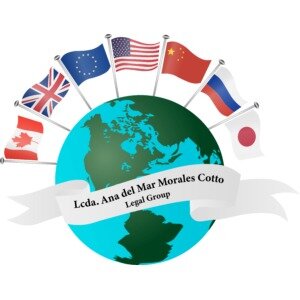Best International Trade Law Lawyers in Puerto Rico
Share your needs with us, get contacted by law firms.
Free. Takes 2 min.
Or refine your search by selecting a city:
List of the best lawyers in Puerto Rico
About International Trade Law in Puerto Rico
International Trade Law in Puerto Rico encompasses the rules, agreements, and guidelines that manage the import and export of goods and services across international borders. Given Puerto Rico's status as an unincorporated territory of the United States, international trade operations here are subject to both U.S. federal laws and local regulations set by the Commonwealth of Puerto Rico. This dual regulatory environment creates a unique trade landscape that local businesses and international entities must navigate carefully to ensure compliance and optimize their trading activities.
Why You May Need a Lawyer
Several common scenarios warrant seeking legal advice in Puerto Rico's international trade arena:
- Compliance with Trade Regulations: Ensuring adherence to both U.S. and Puerto Rico-specific trade laws and regulations can be complex. A lawyer helps navigate these legal frameworks.
- Contract Negotiations: Drafting and reviewing international trade contracts require specialized knowledge to ensure protection against potential legal issues.
- Dispute Resolution: In cases of trade disputes, legal guidance is crucial in navigating litigation, arbitration, or mediation processes efficiently.
- Tariff and Tax Challenges: Legal expertise is often required to handle customs duties, tariffs, and taxes applicable to international trade activities.
- Intellectual Property Protection: Ensuring the protection of trademarks, patents, and copyrights in international contracts is a common area for legal intervention.
Local Laws Overview
International Trade Law in Puerto Rico is influenced by key aspects of both federal and local regulations:
- Customs Regulations: Governed by U.S. Customs and Border Protection, with certain local adaptations in Puerto Rico.
- Import/Export Licensing: Businesses must understand varying licensing requirements depending on the type of goods or services involved.
- Trade Agreements: Puerto Rican businesses benefit from treaties that the U.S. holds with other countries, influencing tariff rates and trade barriers.
- Local Economic Incentives: The government offers various incentives and credits to stimulate foreign trade, requiring a thorough understanding for maximization.
Frequently Asked Questions
What is the role of Puerto Rico in U.S. international trade?
As a U.S. territory, Puerto Rico plays a pivotal role in international trade by acting as a gateway between the U.S. mainland, Latin America, and Europe, leveraging its strategic geographic location.
Do international trade laws differ between the U.S. and Puerto Rico?
While Puerto Rico generally adheres to U.S. federal trade laws, there can be variations and additional local laws specific to its jurisdiction, requiring tailored legal advice.
What challenges might businesses face in international trade in Puerto Rico?
Businesses often encounter regulatory compliance challenges, language barriers, differing local and federal mandates, and complex tax codes.
Are there specific documentation requirements for importing to Puerto Rico?
Yes, standard customs documentation such as invoices, bills of lading, certificates of origin, and import licenses are required.
How do trade agreements impact businesses in Puerto Rico?
Trade agreements can lower tariffs and remove barriers, offering access to new markets. Legal counsel can help in understanding and using these agreements to a business’s advantage.
Can businesses in Puerto Rico benefit from U.S. economic incentives for international trade?
Yes, businesses can take advantage of federal incentives, plus unique incentives offered by the Puerto Rican government specifically for fostering foreign trade.
How does one resolve an international trade dispute in Puerto Rico?
Disputes can be resolved through litigation in local courts or alternative dispute resolution pathways like arbitration. Legal counsel can guide these proceedings.
Are there any restrictions on exporting specific products from Puerto Rico?
Yes, certain products may have restrictions. Legal guidance helps in navigating these sensitive areas and ensuring compliance.
What are the key compliance issues for international trade in Puerto Rico?
Key issues include adhering to customs requirements, tariff classifications, export controls, and compliance with both U.S. and local trade laws.
Does the legal environment in Puerto Rico pose any unique challenges for international trade?
The combination of U.S. federal laws and local Puerto Rican laws creates a unique regulatory environment, often requiring specialized legal assistance for navigation.
Additional Resources
For further information and assistance, consider the following resources:
- U.S. Customs and Border Protection (CBP): Provides guidance on U.S. customs laws applicable to trade in Puerto Rico.
- Puerto Rico Department of Economic Development and Commerce: Offers insights into local incentives and international trade opportunities.
- World Trade Organization (WTO): Resources on international trade agreements affecting Puerto Rico.
- U.S. Commercial Service: Assists with export promotion and helps businesses enter the international market.
Next Steps
If you require legal assistance in International Trade Law in Puerto Rico, consider the following steps:
- Identify Your Needs: Clearly define the specific trade law issues you need help with, whether it's contract negotiation, compliance, or dispute resolution.
- Seek Legal Advice: Consult a qualified lawyer or legal firm specializing in International Trade Law in Puerto Rico for tailored advice.
- Leverage Resources: Utilize recommended resources and governmental bodies to gain additional insights and support.
- Prepare Documentation: Ensure all necessary trade documents are prepared and reviewed by your legal advisor.
- Stay Informed: Keep abreast of any changes in local and international trade laws that might impact your business activities.
Lawzana helps you find the best lawyers and law firms in Puerto Rico through a curated and pre-screened list of qualified legal professionals. Our platform offers rankings and detailed profiles of attorneys and law firms, allowing you to compare based on practice areas, including International Trade Law, experience, and client feedback.
Each profile includes a description of the firm's areas of practice, client reviews, team members and partners, year of establishment, spoken languages, office locations, contact information, social media presence, and any published articles or resources. Most firms on our platform speak English and are experienced in both local and international legal matters.
Get a quote from top-rated law firms in Puerto Rico — quickly, securely, and without unnecessary hassle.
Disclaimer:
The information provided on this page is for general informational purposes only and does not constitute legal advice. While we strive to ensure the accuracy and relevance of the content, legal information may change over time, and interpretations of the law can vary. You should always consult with a qualified legal professional for advice specific to your situation.
We disclaim all liability for actions taken or not taken based on the content of this page. If you believe any information is incorrect or outdated, please contact us, and we will review and update it where appropriate.
Browse international trade law law firms by city in Puerto Rico
Refine your search by selecting a city.













